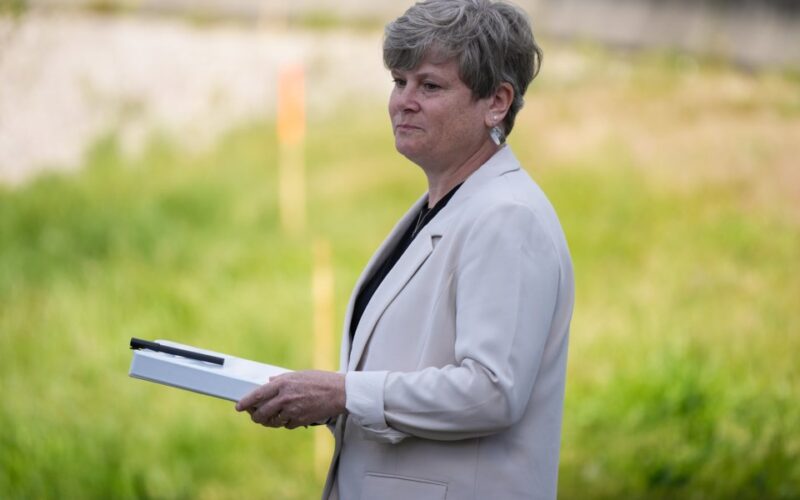Victoria, B.C. (Richa Walia): Four members of British Columbia’s Expensive Drugs for Rare Diseases Committee have resigned following the provincial government’s decision to override their recommendation and reinstate funding for a life-extending drug for a 10-year-old girl suffering from a rare illness.
Health Minister Josie Osborne publicly apologized on Friday to the family of Charleigh Pollock, the only known person in B.C. with Batten disease — a fatal neurodegenerative disorder that causes seizures, blindness, and progressive loss of motor skills. The treatment, Brineura, costs approximately $1 million annually.
The government’s reversal of a controversial decision to stop funding Brineura came after intense public outcry, political pressure, and a wave of support for Charleigh’s family. Osborne said she personally called the girl’s mother, Jori Fales, on Thursday night to deliver the news and apologize for the pain the decision caused.
“I apologized for the pain and suffering they’ve endured,” Osborne said during a news conference. “Charleigh should not suffer due to disagreements among medical experts.”
In a social media post, Fales shared her relief and gratitude, saying the “nightmare is over” and thanking supporters who rallied behind their campaign.
The resignations from the drug advisory committee followed Osborne’s announcement, although the Ministry of Health did not confirm whether the departing members were directly involved in the initial recommendation to cut off funding. The ministry emphasized that the identities of committee members remain confidential.
The decision to halt funding last month was based on the committee’s assessment that Brineura was no longer effective in slowing the disease’s progression in Charleigh’s case. However, that assessment was challenged by a separate group of U.S.-based medical experts who strongly opposed the discontinuation and called for a reassessment of the criteria used.
The case sparked political backlash, with B.C. Conservative Leader John Rustad criticizing what he called the creation of “GoFundMe health care,” and Port Coquitlam Mayor Brad West questioning the compassion of government decision-making.
“Isn’t one of the fundamental roles of elected government to offset the cold, cruel indifference of bureaucracy?” West posted on social media.
Osborne acknowledged the criticism and the public’s frustration, saying, “British Columbians care deeply, and they never want to see a child like Charleigh put in the middle of this.”
She has asked the University of B.C.’s Therapeutics Initiative to conduct a comprehensive review of Brineura’s effectiveness and has urged the drug’s manufacturer, BioMarin Pharmaceuticals, to seek a formal review by the Canadian Drug Agency.
In addition, Osborne called on the federal government to accelerate the implementation of a national rare drug strategy to ensure consistent access across provinces.
Opposition health critic Brennan Day called the government’s reversal a “victory for Charleigh, her family, and every British Columbian who stood up and demanded better,” but questioned the decision-making process.
“The government made the right call, but only after being pushed to the brink by public outrage and media scrutiny,” Day said. “This shows a deeply broken system that only responds when the headlines get loud enough.”
As debate continues, the case of Charleigh Pollock has ignited a broader conversation on how Canada manages access to expensive treatments for rare diseases — and who ultimately makes those life-altering decisions.

